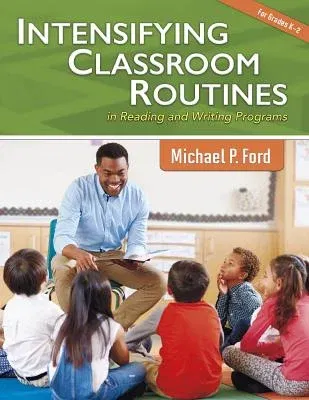Three common routines are seen in almost every primary language arts
programs: morning messages, shared readings, and word walls. These
routines should be integrated to support the total language arts
program, but are teachers of grades K-2 getting the most bang for their
buck out of these activities? Morning messages can become very
routinized and repeat the same experiences over and over again. Shared
readings are sometimes conducted with little variation in spite of
changing demands from the texts being used and changing needs in the
learners with whom they are being used. Word walls might be put up with
some attention early in the year and remain virtually unchanged as the
year moves forward. Intensifying Classroom Routines in Reading and
Writing Programs focuses on how teachers can get more instructional
mileage out of these three common classroom routines. Author Michael P.
Ford lays out step-by-step, day-by-day plans to put those three key
routines on a cycle that changes as students move through developmental
phases. This resource helps teachers plan for emergent and early readers
and writers. It also looks at how teachers can assist students as they
move through critical areas, including concepts of print, alphabetic
knowledge, phonological awareness, sound-symbol relationships,
high-frequency words, structural analysis, context clues, comprehension
strategies, and composition strategies. With these intensified routines
in place, students will clearly see connections between reading and
writing.

